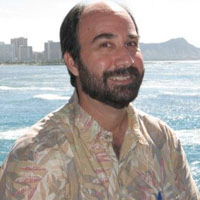Seminar by Professor Robert Richmond
Kewalo Marine Laboratory, Pacific Biosciences Research Center
University of Hawaii
Date: Friday, 24th May 2019
Time: 2.30pm – 3.30pm
Venue: Department of Biological Sciences Conference Room 1, Block S3 Level 5, 16 Science Drive 4, National University of Singapore
Abstract:
Both the value and plight of corals reefs are well established. During the past five decades, researchers have identified the key problems affecting reefs, including sedimentation, pollution, overfishing and climate change. We have also documented extensive losses, with an estimated 50% of reefs having been severely impacted during this period, as a result of human activities. Some reefs are thriving and have demonstrated the capacity for recovery from both local and global level stressors. Others have passed a tipping point and reached an alternate stable state, dominated by algae, and are unlikely to recover without interventions. With the frequency and magnitude of mass coral bleaching events increasing since the 1980’s, both ecological models and observational projections predict further losses and a future with coral reefs of lower biodiversity, structural complexity and ecosystem services. Interventions are under consideration, including active restoration, selective breeding for resistant genotypes, ecosystem engineering and genetic manipulation. The most recent assessments of coral reef status and trends indicate inaction is the path of greatest risk. New tools in biology such as genomics, proteomics, metabolomics and transcriptomics provide answers on how corals respond to stressors at levels from ecosystems to molecules and provide metrics to evaluate the effectiveness of management practices over periods of weeks to months rather than years to decades. New approaches to valuing reefs and their ecosystem services support the will needed at the policy level. As researchers, we need to clearly communicate our science to energize efforts to better bridge the best knowledge to developing and implementing sound policies and actions if leaving a legacy of vital reefs for future generations is to be achieved.

About the speaker:
Dr. Bob Richmond is a Research Professor and Director of the University of Hawaii’s Kewalo Marine Laboratory, Pacific Biosciences Research Center. He received a Ph.D. in Biological Sciences from the Dept. of Ecology and Evolution, SUNY at Stony Brook, spent 2-years as a postdoctoral fellow at the Smithsonian Tropical Research Institute in Panama, 18 years on the faculty of the University of Guam Marine Laboratory, and has been a Research Professor at the Pacific Biosciences Research Center, University of Hawaii at Manoa, since 2004. He has spent his career studying coral reef ecosystems in the Caribbean and the Pacific, including the Virgin Islands, the Grenadines, the Galapagos Islands, Hawaii, Japan and Micronesia. He has served as President of the International Society for Reef Studies, the convener for the 13th International Coral Reef Symposium, the Science Advisor to the All-Islands Committee of the U.S. Coral Reef Task Force and a science advisor for the Joint Ocean Commission Initiative. He is both an Aldo Leopold Fellow in Environmental Leadership and a Pew Fellow in Marine Conservation. His research interests include coral reef ecology, marine conservation biology, ecotoxicology, bridging science to management and policy, and the integration of traditional ecological knowledge with modern approaches to resource use and protection. His approach to studying coral reefs includes the use of ecological indicators, larval physiology and molecular biomarkers.


